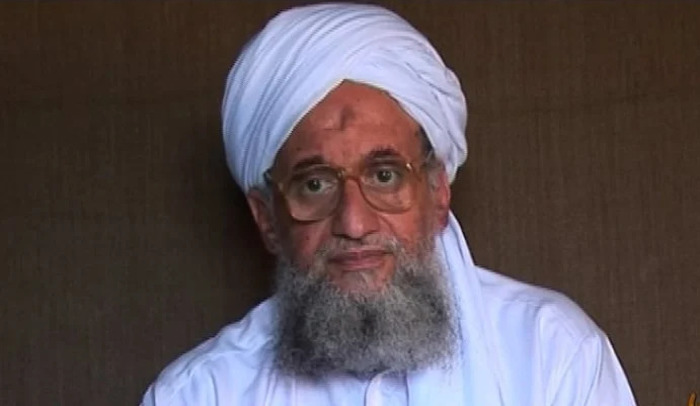President Joe Biden announced on Monday that a drone operation carried out by the United States had killed Al-Qaeda leader Ayman al-Zawahiri, who was hiding out in Kabul.
The assassination of Zawahiri is the worst blow to Al-Qaeda since the killing of Osama bin Laden in 2011, and the Taliban’s commitment to not house terrorist groups is put into question by this event.
On August 31, last year, the United States withdrew its troops from Afghanistan, leaving the Taliban in control. This was the first known over-the-horizon strike by the United States on a target in Afghanistan since then.
The drone strike was criticized by the Taliban on Tuesday, but no mention was made of victims or Zawahiri’s name.
Zawahiri’s execution will offer “closure” to the families of September 11, 2001, victims, Vice President Joe Biden said in an emotional television speech. “Justice has been delivered and this terrorist commander is no more,” he added.
Ayman al-Zawahiri was widely regarded as Al-chief Qaeda’s strategist, as well as Osama bin Laden’s personal physician.
The 71-year-old Egyptian was on the balcony of a three-story house in Kabul when two Hellfire missiles were fired at him shortly after daybreak Sunday, a senior administration official said.
The person said that “we identified Zawahiri many times for sustained amounts of time on the balcony where he was finally struck.”.
One of Kabul’s most opulent neighbourhoods, Sherpur, is home to several high-ranking Taliban officials and commanders.
When rumours of a drone strike first surfaced on social media, the Taliban’s interior ministry rejected them, saying a rocket had hit an “empty house” in Kabul and caused no injuries.
Zabihullah Mujahid, the Taliban’s spokesman, tweeted early Tuesday that an “aerial attack” had been carried out.
According to him, no details were initially provided about the occurrence.
U.S. drones carried out the strike, according to preliminary findings, according to the Islamic Emirate’s security and intelligence organizations.
Despite Vice President Joe Biden’s broadcast statement not mentioning the Taliban, Secretary of State Antony Blinken stated the Islamist group had “grossly breached the Doha Agreement” by “hosting and sheltering” Zawahiri.
Zabihullah, on his part, accused the United States of violating the 2020 accord.
A repeat of the failed 20-year experiment, he argued, would be detrimental to the interests of America, Afghanistan, and the rest of the Middle East.
Since the 9/11 attacks, Zawahiri, who grew up in an affluent Cairo family, has been on the run.
As soon as Osama bin Laden was assassinated, he assumed control of Al-Qaeda and a US$25 million ransom was placed on his head.
One month before the first anniversary of US troops withdrawal from Afghanistan, news of his death comes to light.
However, it is widely believed that Al-links Qaeda’s with the Taliban were never severed under the Doha agreement and that the organisation continues to operate in Afghanistan.
The senior US official added, “What we know is that the senior Haqqani Taliban were aware of his presence in Kabul.”
Afghanistan’s interior minister also leads the dreaded Haqqani Network, which US officials have described as a “veritable arm” of Pakistani intelligence. The Haqqani Network is a violent subsection of the Taliban blamed for some of the greatest carnage in the last two decades.
Sherpur residents told AFP that the house where Zawahiri was allegedly assassinated had been covered in green tarpaulin for some time and that they had assumed it was abandoned.
An employee of a local business remarked, “We haven’t seen anyone living there in about a year.”.
Nothing has ever been lit in there. It’s always been dark.”
Some residents were sceptical that Zawahiri had been lurking in their midst, believing him to be a terrorist.
Fahim Shah, 66, told AFP that it was all “propaganda.”
According to Abdul Kabir, “They should demonstrate to the public and the world that ‘we hit this man and here is the evidence,'”
While Zawahiri was lacking in the charm that enabled bin Laden to mobilize Islamists around the world, the Al-Qaeda leader gave freely of his analytical skills to the cause.
Zawahiri was described by a White House official as “one of the last leaders who had this type of relevance” even though the group’s strength is widely considered to have declined after the US invasion of Afghanistan in 2001.
Colin Clarke, a researcher at the Soufan Center, described the organization as “at a crossroads” in an interview.
“As the organisation attempts to rebuild under Zawahiri’s guidance, it will still have to contend with significant obstacles in the future. In the wake of Zawahiri’s death, many are wondering who will take over Al-reins.” Qaeda’s
Zawahiri’s father was a well-known physician, while his grandfather was a revered prayer leader at Cairo’s Al-Azhar seminary, the Sunni Muslim’s highest authority.
For many, he has come to represent the extremist Islamist movement in Egypt, which he joined at a young age.
In the mid-1980s, he left Egypt and travelled to Pakistan’s northern city of Peshawar, where the Afghan resistance movement was centred, to join the fight against the Soviet occupation.
At the time of Zawahiri’s initial meeting with bin Laden, thousands of Islamist fighters were pouring into Afghanistan.
When Osama bin Laden issued a “fatwa” in 1998 advocating for strikes on the United States, he was one of five signatories.
While some Jihadists questioned the legitimacy of the story that Zawahiri had been murdered, others believed he had achieved his goal of “martyrdom,” according to the SITE jihadist monitoring group.
